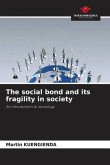Roma are accused of neither working nor accepting the offers of employment and training made by formal employment entities. In order to understand the ins and outs of this issue we studied the relationship between Romani individuals, employment and employers in Portugal. Romani individuals registered at the Entre Douro e Vouga Employment and Vocational Training Centre were studied in order to ascertain whether or not these registered individuals obtain answers (or not) for integration into the formal labour market in order to cease being "assisted" by the State. Unemployment is a relatively recent "status" ascribed to Roma and results from that formal relationship with public entities responsible for the management of social and employment policies. This "status" is experienced by Romani individuals with a certain resignation in the face of a society that apparently fails to come up with feasible and achievable proposals. In contemporary societies, professional qualifications andeducational levels are essential to the definition of social status. What is the possible valuation for those who cannot enter the labour market, as is the case of Roma people?
Bitte wählen Sie Ihr Anliegen aus.
Rechnungen
Retourenschein anfordern
Bestellstatus
Storno








